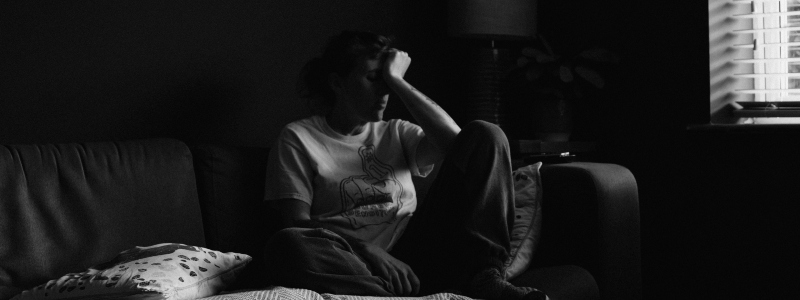Put another way, is getting anything less than 100% not acceptable to you, and a trigger for uncomfortable feelings of failure, of not being good enough, of self-criticism, self-doubt and shame?
In my experience as a psychotherapist, a personal drive for perfection is often the root cause of distress in many of those seeking therapy. It can be a hard issue to resolve. After all, why would we not try our best?
An illustration of how much pressure unrelenting standards (US) can generate is a client I saw who, for ‘relaxation’ – as she saw it – became a triathlete. Nothing wrong with that, of course, but for this thirty-something woman, who for this blog I will call Caroline, her hobby required a series of log books and electronic aids to record every jog, every swim and every bike ride with painstaking notes about her heart rate, timings and much more (1).
It emerged in therapy that Caroline took any sign that her performance was not improving as a trigger of dismay. Was it because she was getting old? That she was physically too weak? Or that she was simply not good enough? She spoke about her ‘hobby’ almost as if it was a military exercise. The physical benefits were clearly being offset by that the effort involved was itself yet another source of worry. Worry about worry!
So how do unrelenting standards develop as a pattern of behaviour that can have maladaptive and counter-productive overtones? In a previous blog, I wrote about basic human needs, and pointed out that, according to US psychology researcher Caroline Dweck (2), in order to feel safe we need to come to feel that we exist within a secure base. How is this generated? Key elements are that we need to grow up feeling that the world is reasonably predictable, that we are accepted and loved (by those around us) and that we are sufficiently competent.
If that happens and we believe we are indeed broadly secure, the Dweck paper also says that we come to believe we can trust other people, we feel that we have a reasonable degree of agency and control over what happens to us in the world, and we develop a healthy and balanced sense of self-esteem.
Against that background, how do unrelenting standards develop? The current theory is that if we feel we have been abandoned in any way during our lives (for example by bereavement or as a result of divorce), and/or if we have been badly mistreated or abused, and/or if we come to believe we are basically defective, feelings that we are fundamentally unsafe develop. Our secure base is seriously compromised.
Those feelings are triggered in a part of the brain called the limbic system, which exists to monitor danger and to provide the tools for dealing with perceived threats. It is an extremely powerful and fast-acting structural network and if was not, we would soon be dead. Our fight-flight-freeze responses – all there to protect us – originate in the limbic system and they are activated by the five basic emotions: fear (through which we become aware of danger); anger (with which we can deal explosively and rapidly with threats); disgust (which, when triggered, prevents us ingesting poisons); sadness (loss of a loved one is perceived as a threat because we evolved as pack animals); and joy – the one positive emotion, which is an expression of the pleasure and sense of safety we feel when connected with the world and others.
The upshot of this is that if we feel we are in danger, the limbic system goes into overdrive.
We cannot relax. Any signal, however small, of abandonment, or abuse, or of defectiveness has to be countered by effort and that involves making sure that every aspect of what we do is ‘safe’.
How can this be treated? A vital step is to obtain an understanding of the root causes. In Caroline’s case, it gradually emerged that a significant factor was that her father – though otherwise very loving – never seemed satisfied with what she achieved. He regarded a ‘B’ grade in an exam as a failure and even an ‘A’ was not good enough unless she was also top of the class. Caroline often turned to her mum for reassurance, but instead, she sided with dad. The result was that Caroline first came to dread exams and then went into constant
overdrive to make sure she got the highest possible grades and left nothing to chance. She became locked in what felt like a desperate battle to prove she was not defective. A relentless drive towards perfection felt like the only way she could get love and affection from her parents.
Once Caroline became aware of the nature of the pressure involved, she could begin to see that as an adult, she could make her own choices about the amount of effort she wanted to expend on tasks, and could begin to experiment with dealing with day-to-day demands in a less stressful way, including that sometimes- and maybe even often – 70% is not failure.
Further information about unrelenting standards is contained in this You Tube video.
David Keighley is a BACP Accredited counsellor/psychotherapist offering short and long term therapy to individuals and couples using a variety of techniques such as EMDR, CBT and Schema Therapy. He is also a trained clinical supervisor. He is available at our Brighton & Hove Practice.
Resources –
(1) Details changed to ensure client cannot be identified.
(2) https://moodle2.units.it/pluginfile.php/358466/mod_resource/content/1/2017%20Dweck%20PR.pdf

Leave a Reply